Africa Centre of Excellence in Coastal Resilience |  University of Cape Coast
University of Cape Coast
Imagem
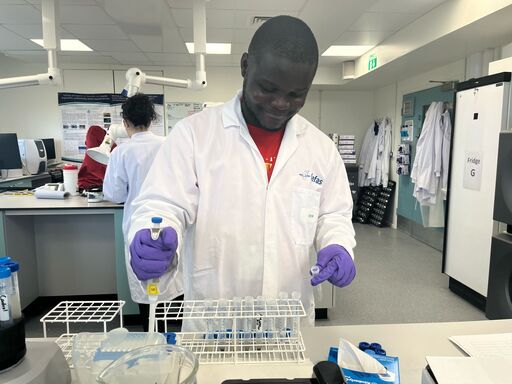
Posted On
Quarta, 07 de Maio de 2025 - 15:01
Corpo
From 1st to 10th April, 2025, Albert Koomson completed an intensive scientific training at the Centre for Environment, Fisheries and Aquaculture Science (Cefas) in Lowestoft, UK. Funded by the Ocean Country Partnership Programme as part of the UK Blue Planet Fund through the Department for Environment, Food and Rural Affairs (DEFRA) and the Association of Commonwealth Universities (ACU), Albert is an MPhil Integrated Coastal Zone Management candidate at the Department of Fisheries and Aquatic Sciences at the University of Cape Coast (UCC). This exchange strengthened his capabilities in marine environmental monitoring and laboratory techniques while fostering collaboration between Cefas and UCC.
The program provided Albert with comprehensive exposure to multiple disciplines critical for coastal management. In the Ecotoxicology Laboratory, he learned advanced techniques for assessing contaminant impacts on aquatic life using Microtox analyzers and other specialized equipment. The Microplastic Laboratory introduced him to cutting-edge spectroscopic tools for identifying plastic pollution, positioning UCC to join the global OCPP network for plastic research.

Radiochemistry applications revealed how Lead-210 dating techniques can reconstruct sedimentation histories, with potential applications for Ghana's mangrove ecosystems and climate reporting. Laboratory quality assurance training emphasized the importance of ISO 9001 and Good Laboratory Practice frameworks, providing a model for enhancing standards at UCC's Fisheries and Coastal Research Laboratory.
Cefas also organized sessions on biomarker research to examine methods for detecting sub-lethal contaminant effects in marine organisms, while trace metal analysis training introduced Albert to ICP-MS and GC-MS instrumentation essential for environmental monitoring. He also studied emergency response frameworks using GIS-based modeling for pollution incidents, gaining practical skills in environmental management.
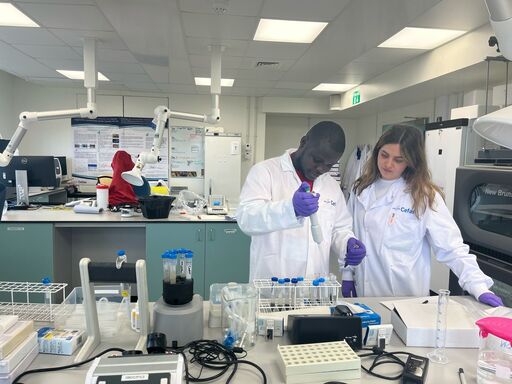
The highlight was a hands-on training with the Microtox bioassay system, which uses bioluminescent bacteria to rapidly detect environmental toxicity. He also analyzed 24 sediment samples from Ghana's coastline using this technique, gaining skills directly applicable to his current research on sediment toxicity assessment.
This experience has established a foundation for collaborative research between Cefas and UCC, particularly in microplastic pollution, sediment dating and marine spatial analysis. The knowledge gained will contribute significantly to scientific capacity building and sustainable environmental management in Ghana as well as West Africa.
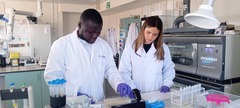
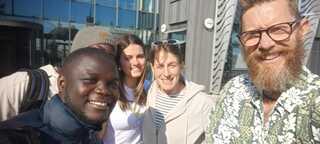
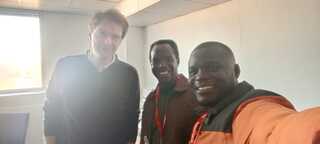
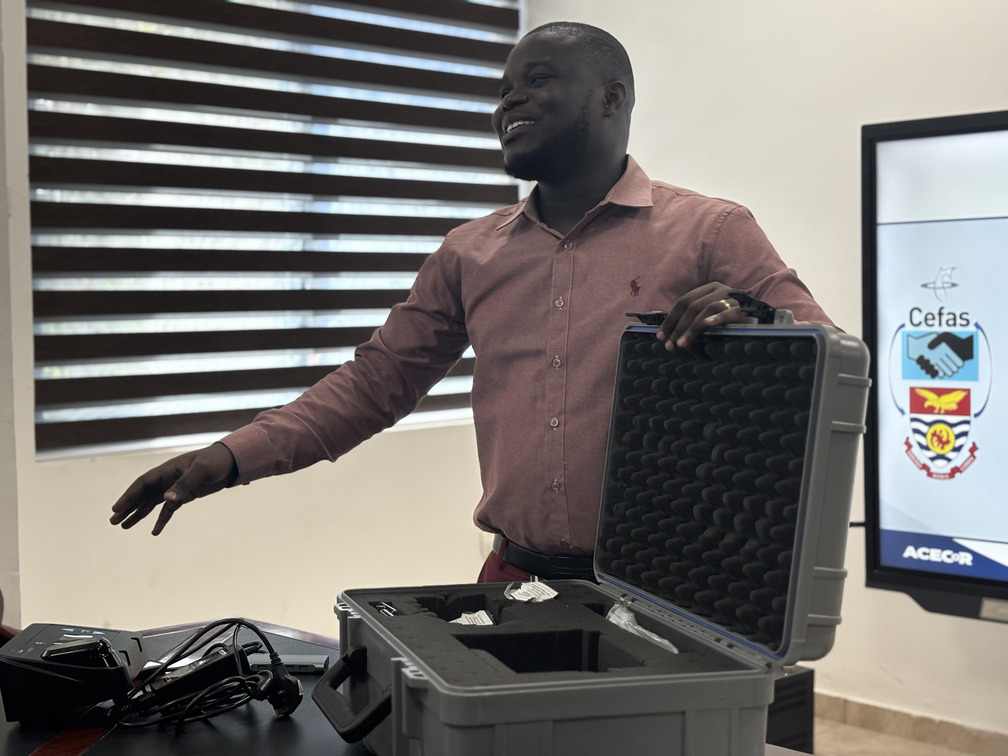
Última modificação
